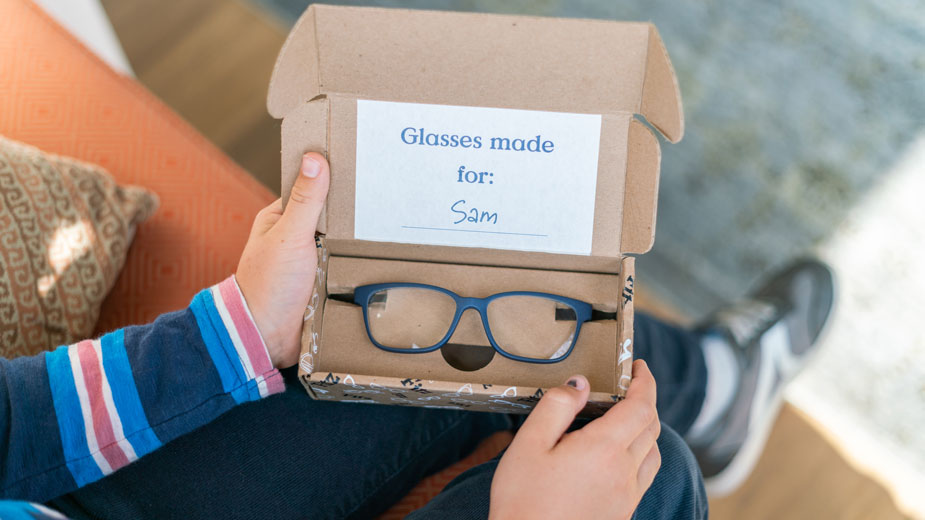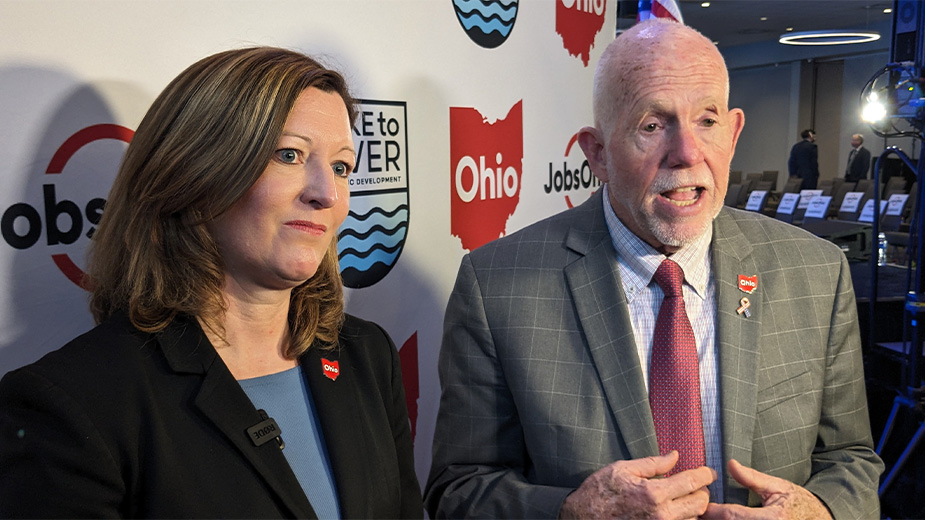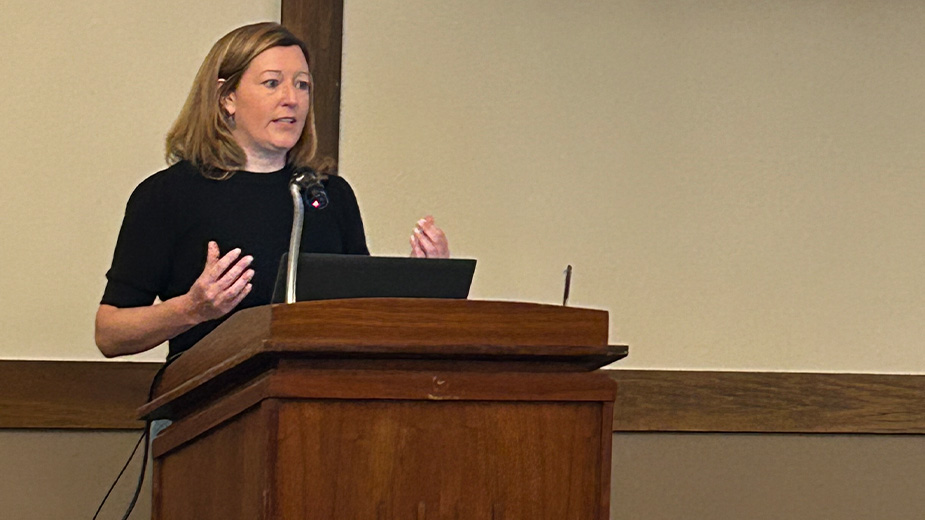Fitz Frames Finds YBI a Perfect Fit for Its Eyewear
YOUNGSTOWN, Ohio — An additive manufacturer of eyeglass frames based in Los Angeles is set to begin operations in the Youngstown Business Incubator’s TechBlock Building No. 5.
Fitz Frames manufactures children’s eyewear using 3D printing technology. Founded this year by co-CEOs Heidi Hertel and Gabriel Schlumberger, the company chose the YBI for its manufacturing operation because of the area’s reputation for 3D printing and additive manufacturing, Hertel says.
“The more research we did, the more we were impressed with the city and saw it to be the Silicon Valley of all things 3D printing,” Hertel says. “The community has been really supportive and we have found solid talent coming out of the local universities.”
Fitz employs seven and the launch of its operations and sales will dictate expansion, Hertel says.
Schlumberger was in Youngstown last week helping to set up the company’s two commercial 3D printers and other production equipment, and the company expects to begin operations next month.
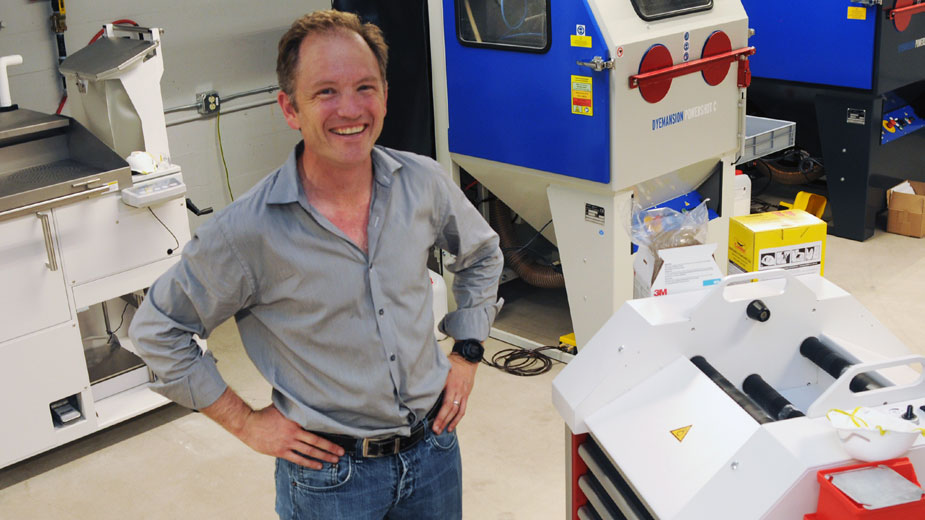
To start, the company is shipping throughout the United States and has a waiting list of nearly 5,000 customers, Hertel says. Glasses will be shipped by FedEx and UPS.
“Our interest to date has been solely from U.S. customers,” she says. “We’re really pumped to start shipping frames to them next month.”
Hertel came up with the idea for Fitz Frames four years ago and has been developing the company ever since, she says. A mother of three, two of whom have been wearing glasses since they were toddlers, Hertel had trouble finding glasses for them.

Fit was the biggest issue, she says. If the glasses don’t fit right or don’t feel good, “the kids don’t want to wear them,” she says. Other problems stemmed from finding a style her kids would want to wear to the durability of the frames – or something inexpensive to replace when they were broken, she says.
While researching the problem online, at retail locations and at trade shows, she found parents all had the same issues. Typically, parents have to compromise on fit, style, color and price, she says.
“A lot of times, glasses are really expensive, over $300 once you have the frames and lenses,” Hertel says. “I talked to a lot of parents and found, over and over again, that all of us had the same problem.”
Because traditional manufacturers have to produce frames in batches, they aren’t custom made to an individual’s fit, she says. Fitz Frames addresses that issue by using a proprietary smartphone app and 3D printing technology to craft a pair of frames unique to the individual.
Using the app, the customer takes pictures of her child’s head and face, Hertel says. The app features advanced facial mapping technology to identify the perfect size and fit for the child, she says. Each measurement, including pupillary distance, is measured down to the millimeter, she says.
“From that picture, we’re able to get several points that we then use to fit the glasses for you,” Hertel says.
The app also has a virtual try-on feature so kids can see what the different style frames look like on them. “The kids really like that part where they can see themselves wearing the different designs that we have,” she says. The arm of the glasses near the temple can be personalized, such as with the child’s name.
After the parent finalizes the purchase with a mobile payment tool, such as Apple Pay, the order and measurements are fed back to Fitz and the frames are put into production. Frames are printed using a polyamide powder and electricity, then dyed. The powder results in frames that are impact-resistant and can be easily heated for resizing, she says.
The process doesn’t involve hinges or screws, which create one of the main pain points of traditional frames, she says. Instead, Fitz Frames uses a ball-and-socket joint that kids can easily fix themselves, she says.
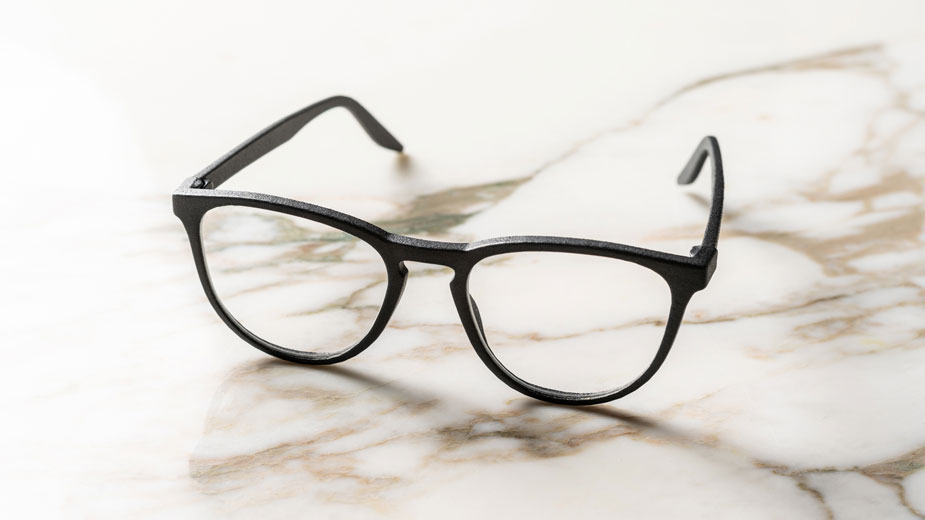
The process shakes off excess powder and smooths the frames for a comfortable fit, she says. The powder is recyclable, so excess is put back into the printing process, making for a nearly zero-waste production, she says, even the packaging is recyclable.
Fitz’s new printers allow individual orders to be printed in batches to maximize efficiency, she says. Because Fitz doesn’t need to keep an inventory, it can produce new designs in 72 hours compared to a traditional glasses designer, which “can take 14 months to bring an idea of a design to life,” she says.
“It’s going to be a fun thing to explore,” Hertel says.. “We’ve had a ton of interest, which is great to see our message resonating. We’ve got questions from all over the country.”
Fitz’s process and technology represents an important milestone in the additive manufacturing industry, says Barb Ewing, CEO of the YBI. Innovations related to new equipment, materials or products for low-volume production — like aerospace or race cars — represent the “next step in the evolution of the additive manufacturing market.” For Youngstown, bringing Fitz to the YBI is “a watershed moment,” she says.
“Being able to attract a company of this caliber from Southern California to Youngstown is a validation of our expertise in the market,” Ewing says. “To have a portfolio company that was featured in Fast Company magazine ups our profile. They’re bringing press to us, which raises our visibility. It is confirmation of the model we’ve been building and our expertise in additive manufacturing.”
That awareness is another feather in the cap for the YBI and Ewing, who was in Germany this month as part of a delegation to discuss Industry 4.0, the term used to describe the concept of smart factories with equipment connected to the web. The visit is a part of the dialogue between Germany and the United States that included a German delegation’s visit to Youngstown in May.
Ewing hopes the visits will move Youngstown to the forefront of changes in the additive manufacturing industry, she says. While Youngstown has seen a lot of movement on the supply chain side of additive manufacturing, “We have not seen a lot of movement on companies making products for the market,” she says.
Having companies like Fitz mass producing custom products in the city is the future of the industry, “and it’s great to be on the cusp of that,” she says.
“We’ve got great local portfolio companies in additive manufacturing,” she says. “But the ability to attract companies to the region is really going to differentiate us.”
Ewing credits the attraction of Fitz to the relationships between YBI, like America Makes, Youngstown State University, Team NEO and the Manufacturing Advocacy and Growth Network, or Magnet.
Matt Lawson, a production engineering intern from YSU, will help manage the production line at Fitz while executing the 3D printing process and looking for ways to make the production more efficient, says Danielle Lopez, marketing representative for Fitz.
“We only have one intern now but are looking for more as we launch and scale our business,” she says.
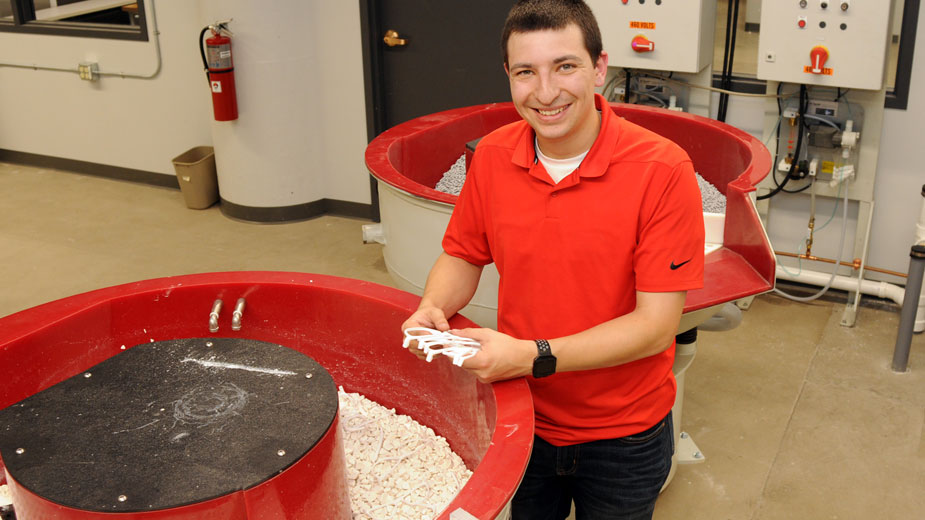
“We are pleased that Fitz Frames has decided to locate here in Youngstown for their 3D-printing operation,” John Wilczynski, executive director of America Makes, said in a prepared statement. “Their unique business model of custom-fit eyewear built on digital information and produced with 3D-printing demonstrates many of the powerful benefits of this technology. We are excited to welcome them into the community!”
Fitz’s Hertel came to know of Youngstown through her position on the California advisory board for Vision to Learn, a California nonprofit that provides free eye exams and glasses to children, she says. The nonprofit serves children all over the country and Classic Optical Laboratories Inc. provides the lenses, she says.
Representatives from Classic Optical told Hertel about Youngstown’s additive manufacturing infrastructure and the YBI, she says. Classic Optical will provide the lenses for Fitz’s operation as well, she says.
As the company grows, Hertel is looking to develop a partnership with eye doctors for sales, as well as a relationship with the Loving Eyes Foundation, which fits glasses to children with craniofacial anomalies and can’t wear traditional glasses.
“We can use 3D printing to meet their needs,” Hertel says.
Pictured above: Fitz Frames, Los Angeles, uses 3D printing technology to manufacture custom glasses for children. Its manufacturing operation is based out of the Youngstown Business Incubator’s TechBlock Building No. 5.
Copyright 2024 The Business Journal, Youngstown, Ohio.
